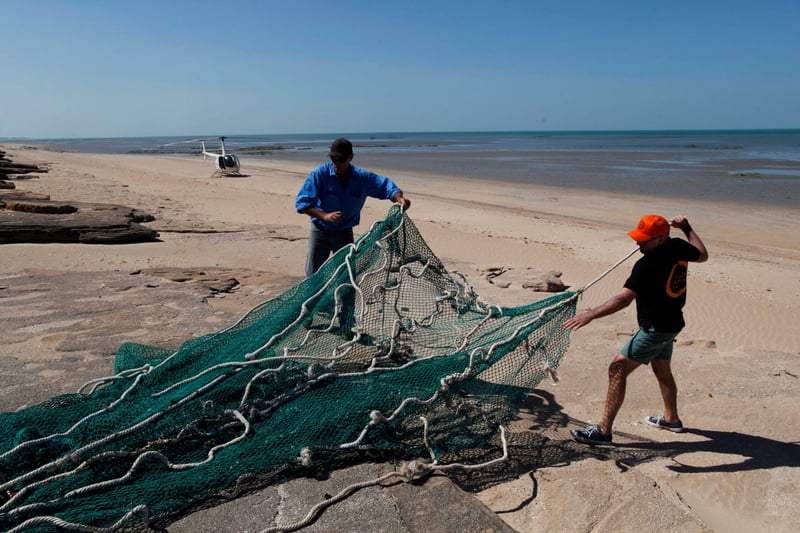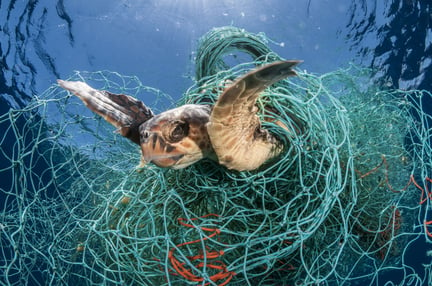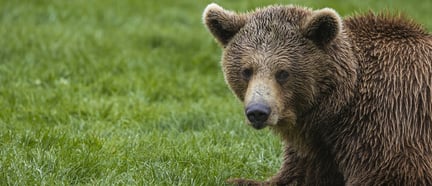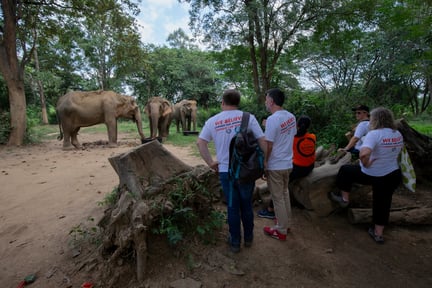
How the Australian Government is helping tackle plastic fishing nets
News
Great news, $14 million has been allocated to help tackle ghost fishing gear. This amazing win for turtles, whales, and other Australian sea animals is thanks to your ongoing support.
Top image: Dean Sewell
Last year, World Animal Protection funded an aerial survey of the Gulf of Carpentaria to assess how many lost, abandoned and discarded fishing nets were washing up on beaches that are critical turtle nesting.
We partnered with James Cook University and CSIRO to document the alarming amount of lost, abandoned and discarded plastic fishing nets in the Gulf region.
With your help, we presented our evidence to the Federal Environment Minister who was drawing up new plans to address plastic waste. Then we were invited to host a workshop on the topic at National Plastics Summit 2020 in Canberra earlier this year.
Thanks to supporters just like you, the Government allocated $14 million to help remove ghost nets and marine debris - a positive step in the right direction to protect turtles and other marine animals.
Why ghost gear has got to go
A staggering 640,000 tonnes of ghost gear is left in our oceans each year: not just nets, but traps, lines and other items of fishing gear.
Made of nylon and plastic, ghost nets can take centuries to break down and can drift in the ocean for many years trapping, injuring and killing marine animals such as turtles, seals, whales, sharks and seabirds.
The Gulf of Carpentaria in northern Australia has been identified as a global hotspot for ghost nets, with over 2,400 tonnes drifting from Southeast Asia into Australian waters each year. Disturbingly, the CSIRO has estimated that 5,000 to 15,000 turtles have been caught in the nets washed up on the Gulf’s beaches in the past decade.
Credit: Blue the Film
Ben Pearson, Head of Campaigns for World Animal Protection Australia said:
“Fishing nets are designed to catch and kill, and when it is lost or abandoned in the ocean it continues to do this, becoming the most harmful form of marine debris for sea animals."
“It’s heart-breaking to know that animals caught in these incredibly durable nets can suffer from debilitating wounds, suffocate or starve to death over a number of months.”
With your help, we’ll continue the fight against ghost gear to keep sea animals safe in our oceans.
World Animal Protection acknowledges the Traditional Custodians of the land, and recognises their continuing connection to land, water and community. We pay respect to Elders past, present and emerging.
Sea Change: tackling ghost fishing gear
Abandoned, lost and discarded nets, lines and traps known as ‘ghost gear’ are one of the biggest threats to our sea life.
What we do
Working around the world to end the needless suffering of animals by inspiring people to change animals’ lives for the better.
Support us
Your support is key to bringing an end to animal suffering across the world.



